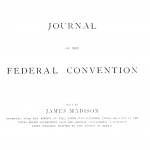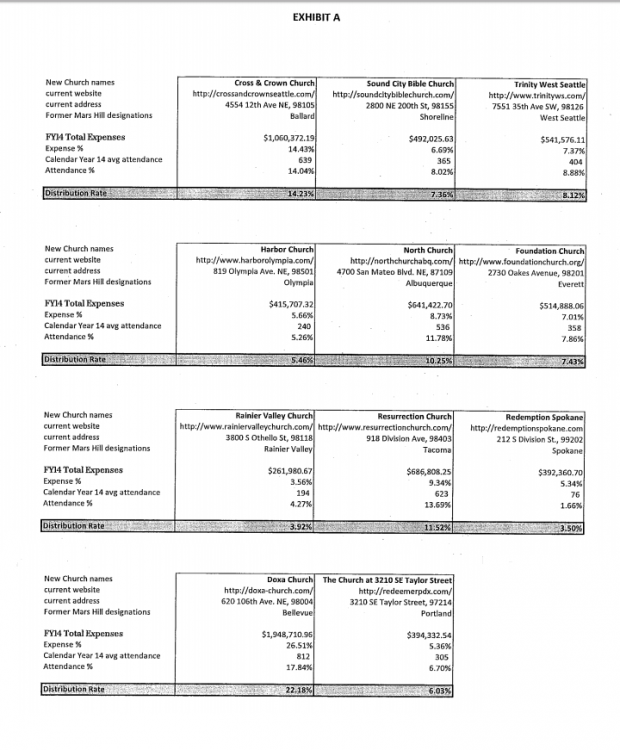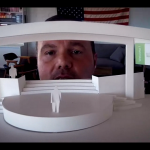 May 29, 1787
May 29, 1787
The Convention wasted little time considering substantial changes to the Articles of Confederation. After seating John Dickinson (DE) and Elbridge Gerry (MA) and passing some additional rules, plans of government were introduced for consideration by Edmund Randolph and Charles Pinckney.
Randolph’s plan began with a set of goals:
The character of such a government ought to secure, first, against foreign invasion ; secondly, against dissensions between members of the Union, or seditions in particular States; thirdly, to procure to the several States various blessings of which an isolated situation was incapable; fourthly, it should be able to defend itself against encroachment; and fifthly, to be paramount to the State Constitutions. (p. 59).
Randolph first listed the problems in the Articles of Confederation:
2. In speaking of the defects of the Confederation, he professed a high respect for its authors, and considered them as having done all that patriots could do, in the then infancy of the science of constitutions, and of confederacies; when the inefficiency of requisitions was unknown— no commercial discord had arisen among any States —no rebellion bad appeared, as in Massachusetts — foreign debts had not become urgent— the havoc of paper-money had not been foreseen — treaties had not been violated— and perhaps nothing better could be obtained, from the jealousy of the States with regard to their sovereignty.
He then proceeded to enumerate the defects:—-First, that the Confederation produced no security against foreign invasion; Congress not being permitted to prevent a war, nor to support it by their own authority. Of this he cited many examples; most of which tended to shew, that they could not cause infractions of treaties, or of the law of nations to be punished; that particular States might by their conduct provoke war without control ; and that, neither militia nor drafts being fit for defence on such occasions, enlistments only could be successful, and these could not be executed without money.
Secondly, that the Federal Government could not check the quarrel between the States, nor a rebellion in any, not having constitutional power nor means to impose according to the exigency.
Thirdly, that there were many advantages which the United States might acquire, which were not attainable under the Confederation— such as a productive impost— counteraction of the commercial regulations of other nations — pushing of commerce ad libitum, &c, &c.
Fourthly, that the Federal Government could not defend itself against encroachments from the States.
Fifthly, that it was not even paramount to the State Constitutions, ratified as it was in many of the States.
3. He next reviewed the danger of our situation and appealed to the sense of the best friends of the United States— to the prospect of anarchy from the laxity of government every where — and to other considerations.
In presenting the case for a new governing document, Randolph referred to practical problems without resorting to religious justification or the Declaration of Independence. Christian nation advocates often view the Attestation clause of the Constitution as incorporating the religious language of the Declaration into the Constitution. The starting point for these delegates was the Articles and the problems with the current government.
The Pinckney Plan
After Randolph’s plan was presented, Charles Pinckney moved to introduce his plan. Madison records:
Mr. Charles Pinckney laid before the House the draft of a federal government which he had prepared, to be agreed upon between the free and independent States of America.
Ordered, that the said draft be referred to the Committee of the Whole appointed to consider the state of the American Union.
Pinckney’s plan was referred to committee and not referred to until later. However, it apparently had influence because much of it made it into the finished product. The story of what was in Pinckney’s original plan is beyond the scope of this post. For more on the contents and debates by historians about what was in the original plan consult the most ambitious record of the Convention, that of Yale historian Max Ferrand.
Ferrand brought together notes made by other delegates in addition to Madison. This record may be examined online in several formats (e.g., also here). In that record, a speech planned by Pinckney but probably not delivered, is included. Pinckney later had it published as a part of his support for the Constitution’s ratification. In this speech found in Appendix A of Ferrand’s Records, Pinckney lays out his rationale for the plan he presented to the delegates on May 29. He gives very little information about the sources for his work but below are some hints:
Upon this principle, however abused, the parliament of Great Britain is formed, and it has been universally adopted by the States in the formation of their Legislatures. It would be impolitic in us, to deem that unjust, which is a certain and beneficial truth. The abuse of this equality, has been censured as one of the most dangerous corruptions of the English Constitution; and I hope we shall not incautiously contract a disease that has been consuming them. (p. 109)
Montesquieu, who had very maturely considered the nature of a confederated Government, gives the preference to the Lycian, which was formed upon this model. The assigning to each State its due importance in the federal Councils, at once removes three of the most glaring defects and inconveniences of the present Confederation. (p. 109)
No possibility of precipitately adopting improper measures ought to be admitted, and such checks should be imposed, as we find, from experience, have been useful in other governments. In the Parliament of Great Britain, as well as in most, and the best instituted legislatures in the States, we find, not only two Branches, but in some, a Council of Revision, consisting of their executive, and principal officers of government. This, I consider as an improvement in legislation, and have therefore incorporated it as a part of the system. (p. 110)
Under the British Government, notwithstanding we early and warmly resisted their other attacks, no objection was ever made to the negative of the King. (p. 113)
It is the anarchy, if we may use the term, or rather worse than anarchy of a pure democracy, which I fear. Where the laws lose their respect, and the Magistrates their authority; where no permanent security is given to the property and privileges of the Citizens; and no measures pursued, but such as suit the temporary interest and convenience of the prevailing parties, I cannot figure to myself a Government more truly degrading; and yet such has been the fate of all the antient, and probably will be, of all the modern Republics. The progress has been regular, from order to licentiousness; from licentiousness to anarchy, and from thence to despotism. If we review the ancient Confederacies of Greece, we shall find that each of them in their turn, became a prey to the turbulence of their members; who, refusing to obey the Federal Head, and upon all occasions insulting, and opposing its authority, afforded an opportunity to foreign powers, to interfere and subvert them. There is not an example in history, of a Confederacy’s being enslaved or ruined by the invasions of the supreme authority, nor is it scarcely possible, for depending for support and maintenance upon the members, it will always be in their power to check and prevent injuring them. The Helvetic and Belgic Confederacies, which, if we except the Gryson league, are the only Governments that can be called Republics in Europe, have the same vices with the ancients. The too great and dangerous influence of the parts — an influence, that will sooner or later subject them to the same fate. In short, from their example, and from our own experience, there can be no truth more evident than this, that, unless our Government is consolidated, as far as is practicable, by retrenching the State authorities, and concentering as much force and vigor in the Union, as are adequate to its exigencies, we shall soon be a divided, and consequently an unhappy people. (p. 115)
I trust no Government will ever again be adopted in this Country, whose Alteration cannot be effected but by the assent of all its Members. The hazardous situation the United Netherlands are frequently placed in on this account, as well as our own mortifying experience, are sufficient to warn us from a danger which has already nearly proved fatal. (p. 121)
The next Article l provides for the privilege of the Writ of Habeas Corpus — the Trial by Jury in all cases, Criminal as well as Civil — the Freedom of the Press, and the prevention of Religious Tests, as qualifications to Offices of Trust or Emolument: The three first essential in Free Governments; the last, a provision the world will expect from you, in the establishment of a System founded on Republican Principles, and in an age so liberal and enlightened as the present. (p. 122)
In addition to these specific influences, Pinckney appealed generally to the problems encountered while trying to make the Article of Confederation work. The founders learned from experience that something else was needed.
Near the end of Pinckney’s explanations, he mentions religion. He advises the elimination of religious tests for holding office (many states had these), as a provision expected by the world in a liberal and enlightened age. If Charles Pinckney wished to establish a Constitution with biblical principles in every clause, he certainly didn’t do a very good job.
David Barton’s Deuteronomy Citizenship Claim
David Barton frequently claims that the citizenship requirement of Article II of the Constitution came from Deuteronomy’s requirement that a Jewish king be a Jew. Pinckney opines in favor of a citizenship requirement but doesn’t mention the Bible as a basis.
The Federal Government should also possess the exclusive right of declaring on what terms the privileges of citizenship and naturalization should be extended to foreigners. At present the citizens of one State, are entitled to the privileges of citizens in every State. Hence it follows, that a foreigner, as soon as he is admitted to the rights of citizenship in one, becomes entitled to them in all. The States differed widely in their regulations on this subject. I have known it already productive of inconveniences, and think they must increase. The younger States will hold out every temptation to foreigners, by making the admission to office less difficult in their Governments, than the older. — I believe in some States, the residence which will enable a foreigner to hold any office, will not in others intitle him to a vote. To render this power generally useful it must be placed in the Union, where alone it can be equally exercised. (p. 120)
With two plans before the Convention, the delegates then adjourned.
Madison’s notes with a version of Pinckney’s plan added by the editor.


